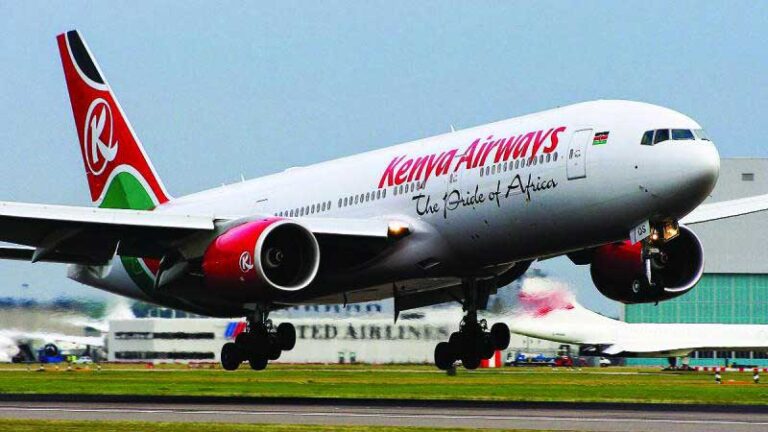National Aviation Management Bill
Introduction
Kenya’s parliament is set to consider the contents of the National Aviation Management Bill (the Bill) which aims to formulate a legal framework for the nationalization of Kenya’s flag carrier Kenya Airways PLC (KQ). Should the Bill pass and KQ be nationalized, Kenya will have done a master reset of KQ returning it to state ownership status that it was in prior to 1996 when it was privatized.
This article looks at the main contents of the Bill.
Background
KQ has faced turbulent times-rising debt, annual losses on end and employment disputes- which have limited its capacity to compete internationally. Kenya’s Parliament voted to nationalize the airline perhaps looking at the model of Ethiopian Airlines and Emirates which seem to be doing well and hoping that nationalization will prop up the fortunes of the airline. Around the globe, there are discussions by stakeholders for the nationalization of airlines to help them survive the adverse effects of COVID 19 pandemic. This global discourse could accelerate KQ’s nationalization discussions.
As at the date of this alert, the Nairobi Securities Exchange has suspended the trading of KQ shares at the exchange for a period of three months effective 3 July 2020 pending the outcome of the nationalization discussions.
Contents of the Bill
- Establishment of a National Aviation Council (NAC)
NAC’s role will be to create a link and encourage cooperation between the aviation sector and the other critical sectors of the economy. It will also assess and appraise Kenya’s actual and potential civil aviation capabilities. Members of NAC will be senior government officials, namely: the President, cabinet secretaries responsible for transport, internal security and National Treasury, Attorney General and Kenya Air Force Commander.
- Mechanism for transferring the assets, functions and liabilities of KQ following nationalization of KQ
The Bill proposes the following state-owned entities be established to oversee the affairs of KQ once the Kenyan Government acquires 100% equity interest in KQ.
(a) A holding company to be known as Kenya Aviation Corporation (KAC). KAC will be at the apex of a group of entities (the KAC Group) that will acquire the functions of KQ following nationalization. KAC will hold shares in the operating entities listed below and will, among other functions, promote the development of the Kenyan aviation sector and the KAC Group and advise the Government on matters relating to the development of the Kenyan aviation sector.
(b) New operating entities within KAC Group which include:
- Kenya Airways (the new Kenya Airways) whose functions shall be, among others, carrier in Kenya and elsewhere of air passengers, cargo and mail, provider of transport related services and acquisition of, sale, hiring and leasing aircrafts and aircraft equipment;
- Kenya Airports Authority (the new KAA) whose functions shall be, among others, to construct, own, operate and maintain aerodromes (an aerodrome is a location from which aircraft flight operations take place) and related services. These functions mirror to a large extent the functions of the Kenya Airports Authority established under the Kenya Airports Authority Act (CAP 395 of the Laws of Kenya) (KAA); and
- Aviation Investment Corporation whose functions shall be undertaking businesses in relation to aviation activities and any other business related to or ancillary to the aviation sector in Kenya as proposed in detail in the Bill.
Section 49 of the Bill states that once the Bill comes into law, the entire undertaking (business, assets, liabilities and contracts) of KQ and KAA shall be transferred to the new Kenya Airways and the new KAA. In addition, the Bill empowers the Cabinet Secretary in charge of transport to issue vesting order(s) to effect the creation of the KAC Group entities and transfer the relevant undertaking to the relevant KAC Group entity as soon as the Bill is passed into law.
- Establishment of Kenya Aviation Corporation Fund (the Fund)
The Fund will be shared by the KAC Group entities. Money paid into the Fund will include, among others, grants, donations and loans from the Government and other bodies and proceeds from the passenger service charge which is currently only apportioned between KAA, the Kenya Civil Aviation Authority and the Kenya Revenue Authority. The Fund is expected to shore up KQ’s revenue.
Issues to consider
We have highlighted a few issues which you may consider as the Bill goes through the legislative process.
- It is highly advisable for counterparties who currently have ongoing contractual arrangements with KQ or KAA to review those contracts to appreciate how the proposed nationalization of KQ will affect them and if need be participate in the legislative process by submitting comments. The Bill provides that rights and liabilities under existing arrangements with either KQ or KAA will be transferred automatically to the relevant KAC Group entity once the Bill is enacted.
- It is important for all stakeholders to familiarize themselves with Kenya’s international obligations in the aviation sector and ensure that Kenya does not fall foul of its obligations. Kenya ,for instance, has an obligation in the open skies for Africa agreement (Yamoussoukro Decision) to liberalize its airspace and so the KAC Group has to ensure that it executes its strategy to develop Kenya’s aviation industry within this obligation.
- The implementation of the Bill will cause additional expenditure of public funds. If KQ is nationalized, it is critical to inculcate high standards of corporate governance in the KAC Group entities to avoid embezzlement of public funds and mismanagement of the new venture.
If you have any queries regarding the Bill or the general aviation practice area, please do not hesitate to contact Peter Mwaura at pmwaura@mwc.legal. Please note that this e-alert is meant for general information only and should not be relied upon without seeking specific subject matter legal advice.







